The 2021 “vote-seeking” call with Georgia’s secretary of state didn’t help Trump overturn the election results, but instead led to his prosecution more than two years later.
Georgia Attorney General Fani Willis on August 14 announced an indictment against former US President Donald Trump on 13 charges related to his alleged interference in the 2020 election results in the state.
The indictment shows that prosecutor Willis focused on a number of issues in the effort to overturn the presidential election results by Mr. Trump and some of his personal assistants and lawyers, especially focusing on the "vote-seeking" call that the former US president made to Georgia Secretary of State Brad Raffensperger.
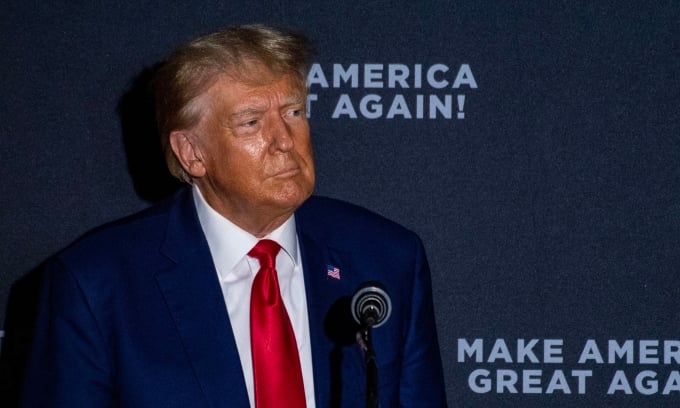
Former US President Donald Trump in Windham, New Hampshire, on August 8. Photo: AFP
After the 2020 US presidential election, when it became increasingly clear that candidate Joe Biden had won the election thanks to victories in key battleground states, including Georgia, Trump and his allies began efforts to overturn the results.
The first steps Trump and his advisers took were to urge Republicans in Congress or battleground state governments to block the certification of the election results or change the results in his favor.
Georgia, a state with 16 electoral votes, is the top target for Mr. Trump's team, because the vote count here shows a fairly close margin, with only nearly 12,000 votes.
More importantly, Georgia is overwhelmingly Republican, unlike Wisconsin, Michigan and Pennsylvania, which have Democratic governors, or Arizona, which has a Democratic Secretary of State.
Trump and his advisers have repeatedly reached out to Georgia Republicans, but they have not supported his efforts to overturn the election results. On November 16, 2020, Secretary of State Raffensperger, a Republican, went public about the pressure he was under from Trump allies as the vote count continued.
Mr. Trump repeatedly requested a recount in Georgia. However, after the third recount, Secretary of State Raffensperger still declared Mr. Biden the winner in this state with the result unchanged.
On December 7, 2020, Secretary of State Raffensperger and Governor Brian Kemp certified the final vote count in Georgia, confirming that Mr. Trump's attempt to overturn the election here failed.
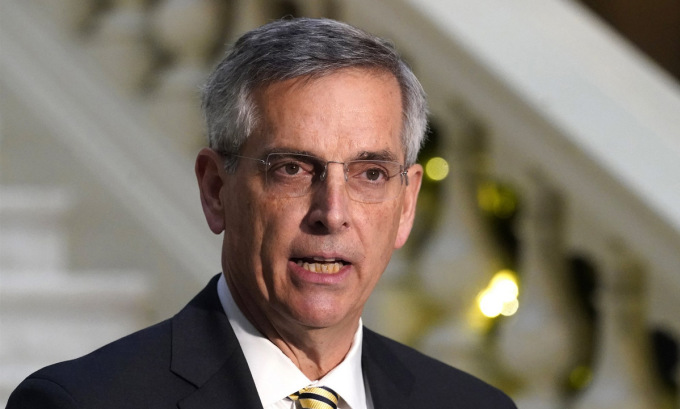
Secretary-General Raffensperger holds a press conference in Atlanta, Georgia, in December 2020. Photo: AP
However, Mr. Trump's team then continued to pressure Georgia election officials. In late December 2020, the former US president called Georgia's top election investigator, asking him to make efforts to find signs of fraud in the state.
In January 2021, Georgia prosecutor Byung Pak abruptly resigned after revealing that he was threatened with being fired if he refused to acknowledge election fraud in Georgia.
However, the focus of the indictment against Trump is a call he made to Secretary Raffensperger on January 2, 2021. During the call, which lasted more than an hour, Trump repeatedly urged Raffensperger to change the election results in the state.
"The people of Georgia and the country are angry. There's nothing wrong with asking for a recount, so let's do it. That's all I have to do. I just want to find 11,780 votes, one more than we have. Because we won Georgia," Trump said, even threatening that Raffensperger could face criminal prosecution unless he found enough votes to overturn the results.
Much of Mr. Trump’s previous interactions with Georgia officials have not been clearly illegal, but the call with Secretary Raffensperger has led many experts to conclude that the former president exceeded his authority to commit crimes under both state and federal law.
"It wasn't a request from a president who was desperate to find election fraud, it was a request from someone who was just trying to win by any means necessary," Washington Post columnist Aaron Blake wrote, adding that Trump mentioned the 11,000-vote figure no less than 18 times during the call.
Content of the "vote-seeking" call between Trump and Raffensperger on January 2, 2021. Video: WP
Because the capital of Georgia is Atlanta, in Fulton County, any violation of state law falls under the purview of Attorney General Willis, a Democrat.
Initially, Attorney Willis appeared to act quickly. On January 4, 2021, she announced that she found the information about the call “disturbing” and warned that anyone who broke Georgia law in her area would be held accountable.
By February 2021, Willis informed Georgia state officials that she had opened an investigation and was looking into possible criminal violations related to election fraud in the state.
Willis’s investigation remained largely quiet throughout 2021. However, in late 2021, the prosecutor announced that he would invoke special grand jury status, which could last longer than the two months of a regular grand jury.
The special grand jury convened in May 2022 and began hearing testimony from witnesses a month later. Prosecutor Willis has taken statements from Senator Lindsey Graham, lawyer Rudy Giuliani and many other key players in Mr. Trump’s team.
Prosecutor Willis also revealed that at one point all 16 fake electors, who were set up by Mr. Trump's team to falsely claim victory in Georgia, were targets of her investigation, although at least eight of them later reached immunity agreements with prosecutors.
The special grand jury completed its work and delivered its report in December 2022. Since the special grand jury has no indictment power, prosecutor Willis convened a regular grand jury in July to hear evidence and approved an indictment against Trump on August 14.
The decision means that Donald Trump has been indicted in all four investigations against him at both the state and federal levels. What is notable about the move from Georgia is that even if Trump wins the 2024 election, he will not have the power to pardon himself or end the prosecution by prosecutor Willis, because it is conducted under state law, not federal law.
Ngoc Anh (According to VOX )
Source link


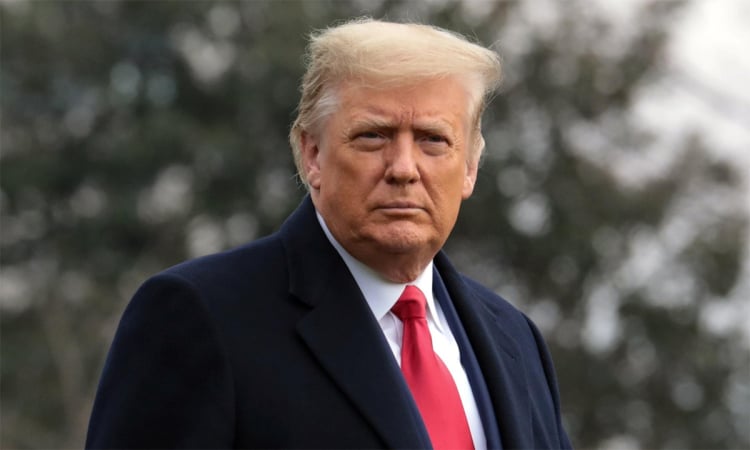






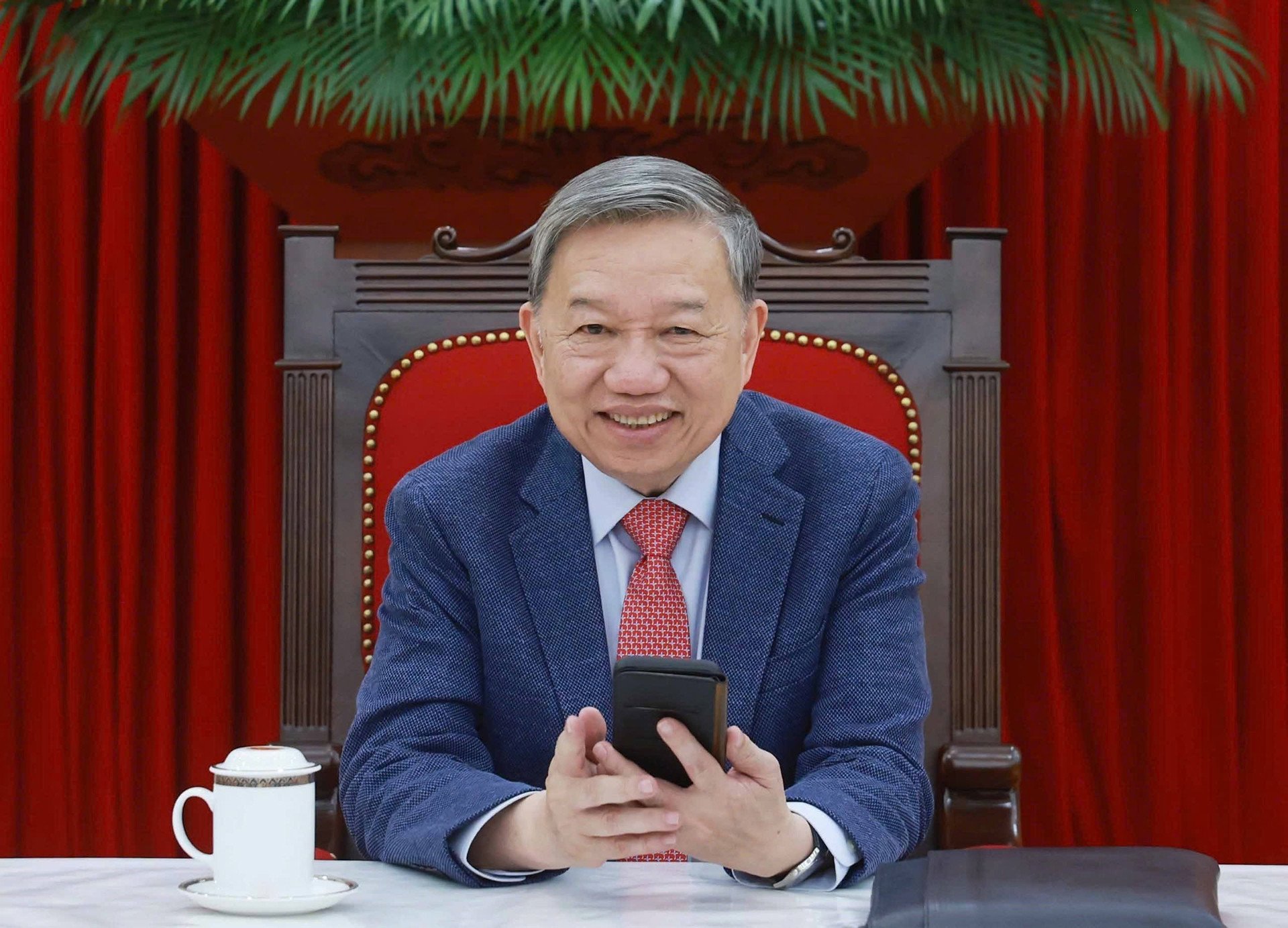



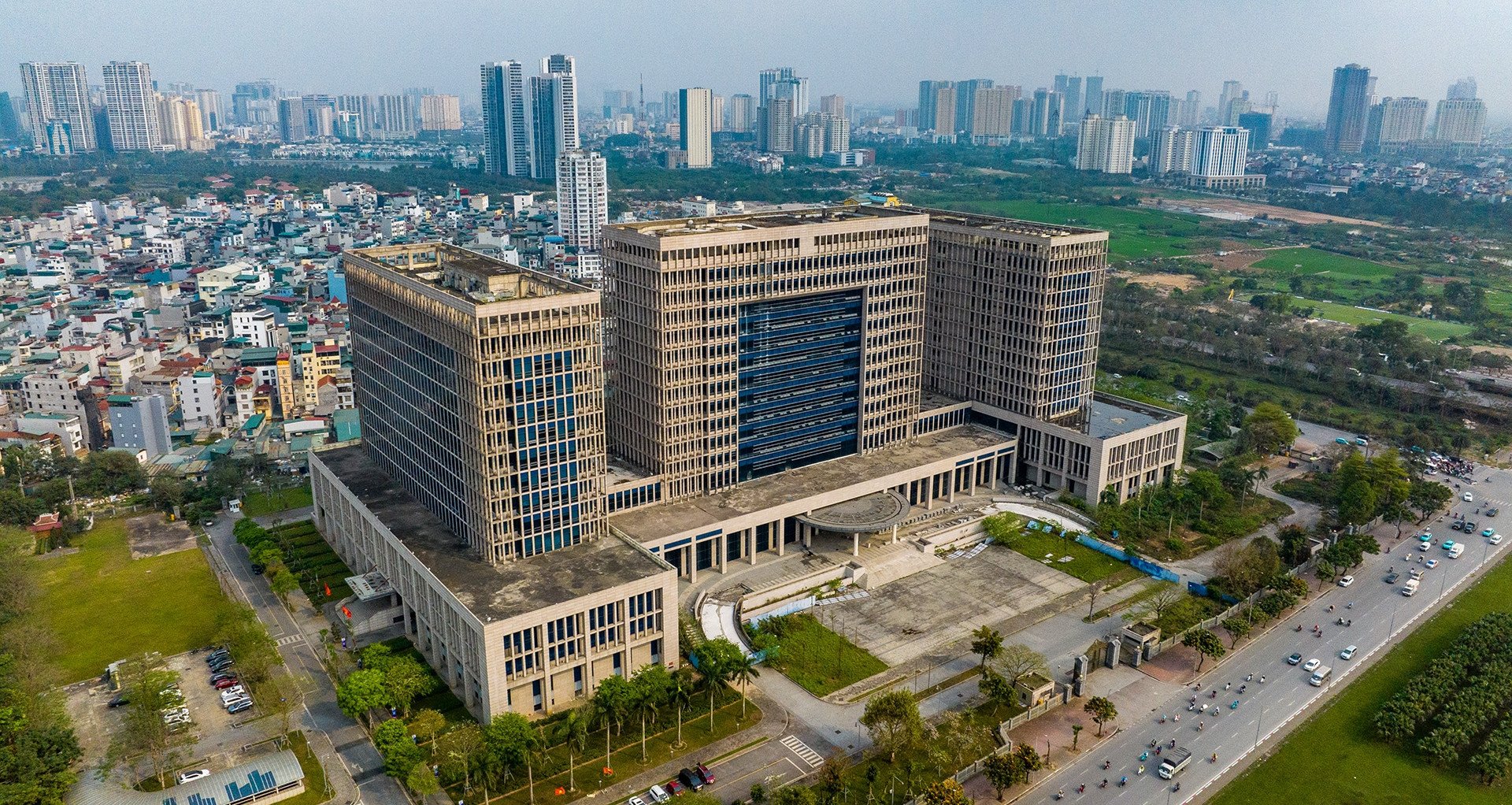

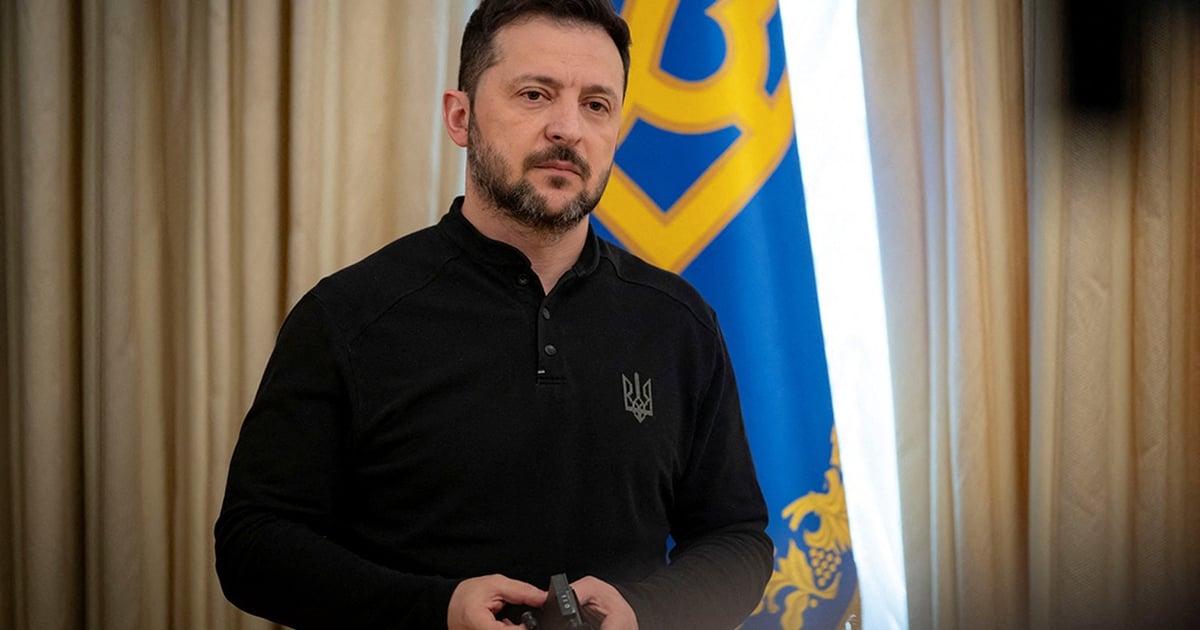
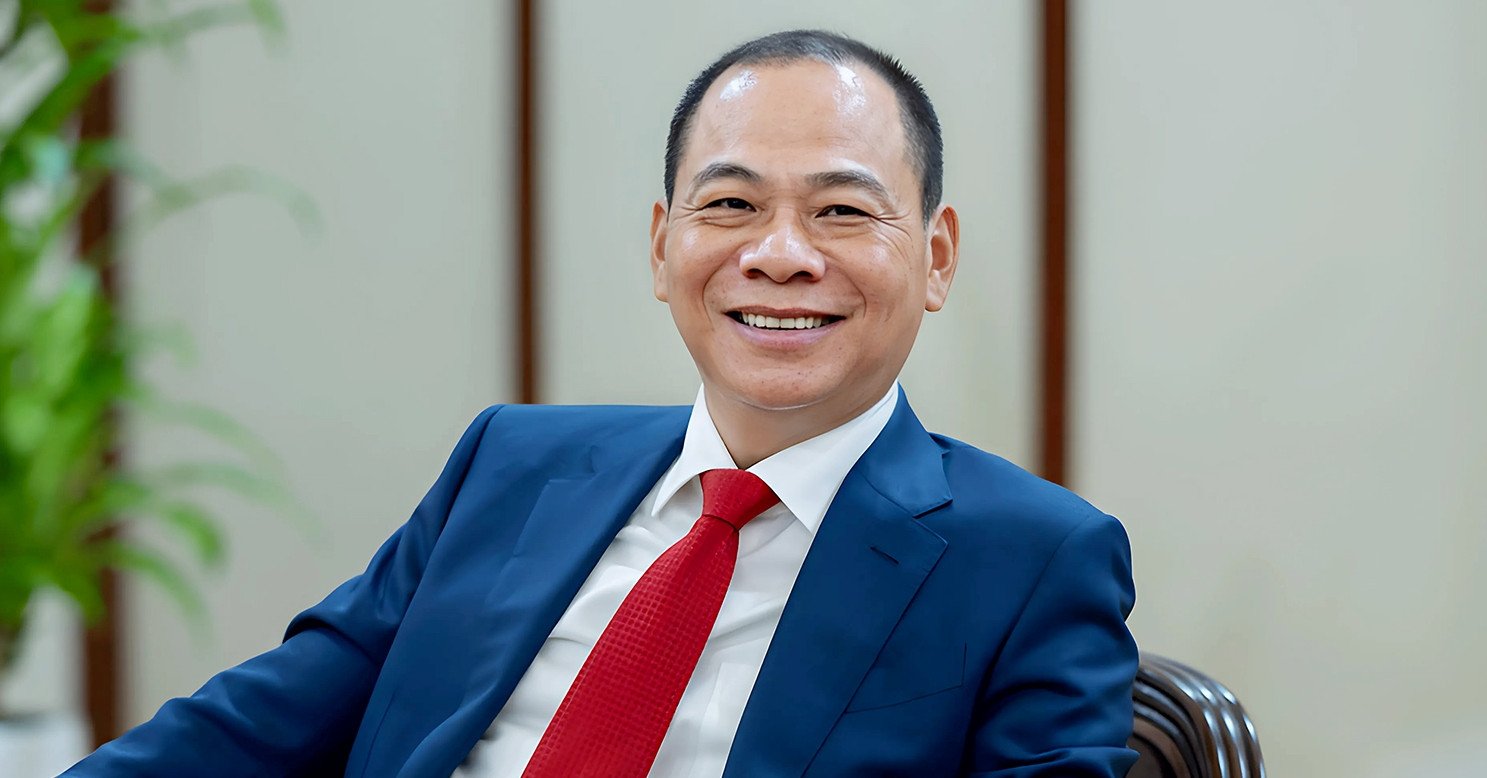

















![[Photo] "Beauties" participate in the parade rehearsal at Bien Hoa airport](https://vstatic.vietnam.vn/vietnam/resource/IMAGE/2025/4/11/155502af3384431e918de0e2e585d13a)































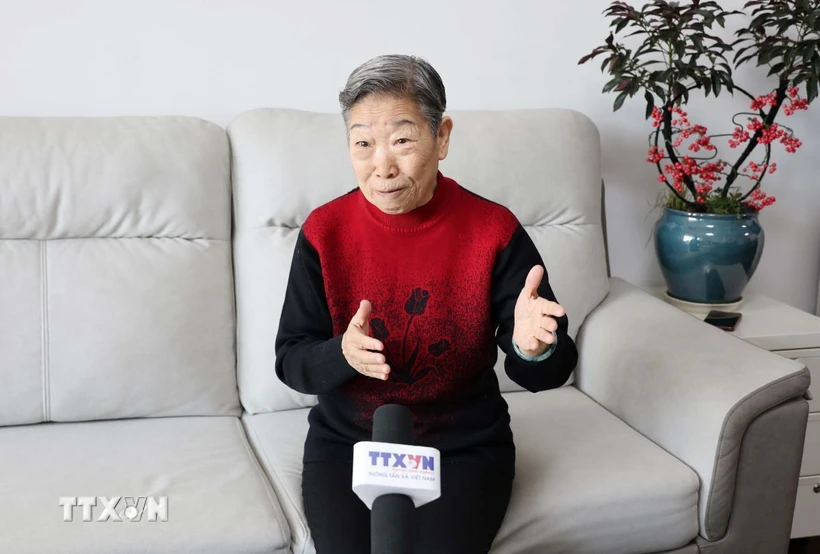












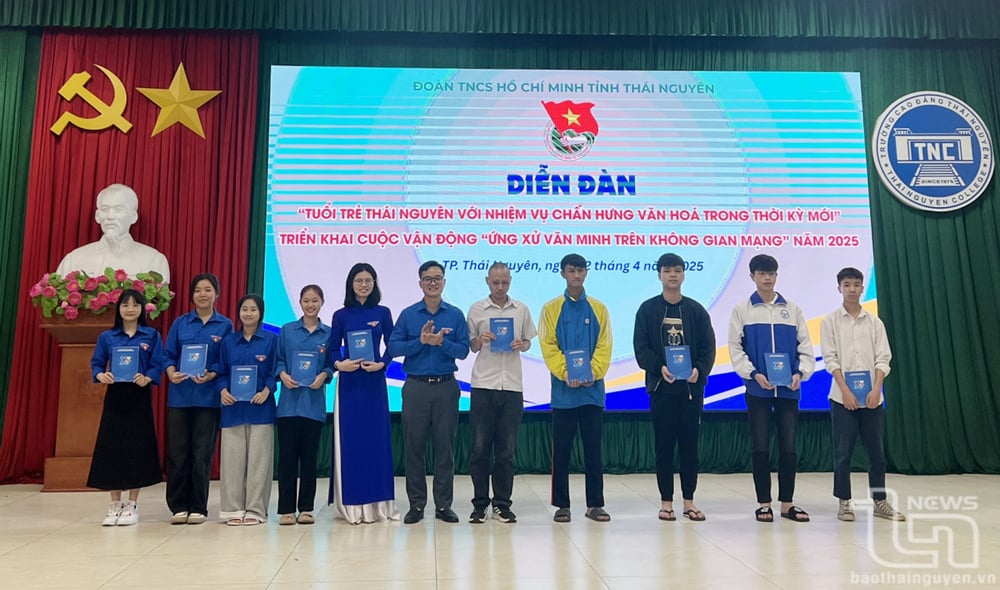




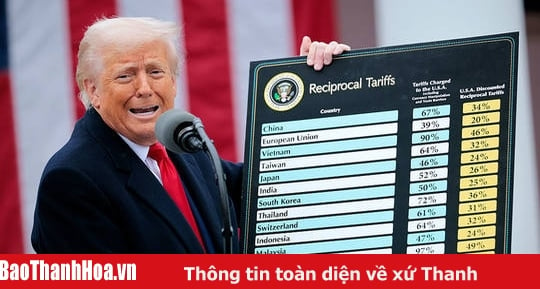













Comment (0)